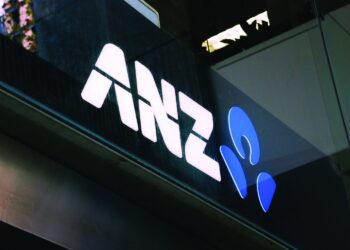Nvidia’s share price went into a vertical decline last week, with its market cap taking a $646 billion hit in a matter of three days – an event analysts have referred to as the steepest three-day loss for any company in history.
The sell-off came within a week of the firm assuming the throne as the most valuable in terms of market capitalisation, surpassing its peers Apple and Microsoft, after its share price hit a record high US$135.58 on 18 June, boosting its market cap to US$3.34 trillion.
Its share price sat at US$118.11 at close on 24 June.
Unpacking this sharp deterioration, AMP’s head of investment strategy and chief economist, Shane Oliver, said it could have been triggered by profit-taking.
“Up until its highs [last week], the headline was Nvidia became the world’s biggest company, but at that point, it had also seen a massive gain over the last year, so anyone who had been in there for the ride was thinking ‘now might be the time to take the profits’,” he told InvestorDaily.
This behaviour is common, Oliver said, especially since the firm had seen “explosive” share price gains of some 200 per cent over the past 12 months.
As investors entertain the possibility that Nvidia was in fact in bubble territory, Oliver brushed aside the theory explaining that the dotcom bubble wouldn’t be possible in today’s environment.
Particularly, he explained that while stretched, tech valuations in 2024 differ significantly to that observed in the early 2000s – a time when the Nasdaq was trading at around 100x earnings.
Today, it stands at a more modest 43x, while Nvidia trades at around 69x earnings.
Moreover, Oliver added that while it took over a decade to realise the benefits of the dotcom boom, the productivity gains of AI have already begun to emerge.
“In this case, the tech stocks are making real profits. Nvidia does make real profits and they’re going rapidly, so I don’t think the market is as vulnerable as it was back then,” he said.
However, while he believes that Nvidia’s current share price drop isn’t necessarily “disastrous”, given its stock is still up some 145 per cent, the pullback could be a signal of a wider correction in the market.
“If you’re a sensible investor, you have to allow that there is a risk here that Nvidia could fall back further, even though the fundamental story is a good one,” Oliver cautioned.
“There was nervousness in May about Nvidia’s last profit results, yet it continued to surprise on the upside, so I don’t think this reflects any fundamental assessment regarding the long-term opportunities for AI. More likely, it just reflected a view that the stock, and wider tech stocks, ride very hard and very fast.”
Over the past year, the AI rally saw the Magnificent Seven stocks – Apple, Microsoft, Alphabet, Amazon, Nvidia, Tesla, and Meta – grow to account for around one-third of the S&P 500’s market weight. Additionally, the stocks comprise 17 per cent of the MSCI All Country World Index (ACWI).
Looking at the events at Nvidia in the context of this rally, which has largely been driving investment markets, Oliver said the technology trend could be “moving into its next chapter”, pivoting from companies supplying the technology, like chipmaker Nvidia, to companies providing access to the technology.
“You could argue a lot of the gains for the suppliers of AI have been seen. That part of the market is looking stretched, so the risk then is we move into the next stage, with the benefit [going] to, say, the Apples and Microsofts, although they have benefited already to some degree,” he observed.
“Eventually, the final phase is when consumers get the benefit.”
‘Much better version’ of dotcom era
Earlier this month, Global X’s head of investment strategy, Scott Helfstein, also dismissed claims that the AI rally could be reminiscent of a second dotcom bubble.
Helfstein noted that unlike the dotcom era, the gains made by the Magnificent Seven reflect years of investment in automation and digitisation, resulting in more efficient businesses.
Importantly, over the past 13 quarters alone, margins of S&P500 companies have increased to 12 per cent, a leap that previously took three-quarters of a century, he said.
Moreover, these margins have been accompanied by 10 consecutive quarters of double-digit capital expenditure, showcasing how companies have invested in improving efficiencies since the start of the pandemic.
“What are companies investing in? They all say the same thing, it’s automation and digitalisation. It’s automation so that they can deliver our products more efficiently and cheaper, and it’s digitalisation so that they can better connect with their customers and they understand their businesses better,” he added.
Over the last quarter, some of the Magnificent Seven have reported significant rises in capital expenditure. Microsoft’s capital expenditures rose to a record $14 billion in the March quarter while Alphabet, the parent company of Google, reported capital expenditures of $12 billion.
In this context, Helfstein predicted that markets will continue to witness “tremendous growth”, coupled with enhancements in margins and profitability, ushering the world into its fourth innovation boom since the 1960s.
“Fast forward to AI, and it’s not a consumer-led technology, it’s a corporate-led technology, and the first impact we are going to see is company efficiency,” he said.







